Christians usually leave out the "rest of the story" from the Christmas story, failing to remember the flight to Egypt and asylum there soon after the birth. We tend to tell the Christmas story in an overly picturesque manner, even though Christians are well aware that Jesus' story will eventually lead to the cross. But that is not the issue discussed here and what most Christians fail to remember is that Jesus' family had to engage in what is known as the "Flight to Egypt" soon after the birth. The Holy Family would then take up asylum in Egypt.
This is the ninth (out of 12) episodes of the series “The Complete Christmas Story.” We previously discussed that what we know as the Christmas story is a mash-up of Matthew's and Luke's accounts, as they are the only two Gospels that include any birth-of-Jesus accounts. Luke has the journey to Bethlehem, the manger scene, and shepherds. Matthew has the visit of the magi or Wisemen. The Flight into Egypt is only contained in Matthew and is a continuation of the magi visitation. Luke's birth story also includes the circumcision and naming of Jesus and his presentation at the Temple in Jerusalem (see Luke 2:21-38). Matthew does not contain these accounts, but presumably, they happened before the family had to flee to Egypt.
The Magi Visit
Here we will focus on Matthew's account of the Christmas story. In their search for whom the star had pointed, the magi had first gone to Herod, asking where the baby who was to become King of the Jews was to be born. Herod's advisors gave them advice on where to look, and Herod told them to return after they found the child so that he could then go and worship the child. However, after they found the baby Jesus in a house in Bethlehem, a dream warned them not to return to Herod. So, they returned to their land by another road.
Of course, Herod had no intention of worshiping this "supposed" King of the Jews. He was King of the Jews (duly installed by Rome). The story is a reminder to Christians that if Jesus is who we claim him to be, that he will always be a threat to the powers that be. No matter how good we think our nation is and how much we love our country, in some ways, it is still always "Rome." It means that, for Christians, our first allegiance must always be to God, not to our country. We should not mix "God and country" too easily, because there will always be tension between them. Moreover, every government expects that it be the first loyalty of citizens, which is unacceptable to God's people.
The Flight to Egypt
God knew the threat that Herod posed to the child Jesus. And so, Joseph received instructions to take Jesus and Mary and flee to Egypt. While scripture does not say so, this is most likely where those impractical gifts that the magi brought become useful. This is a poor peasant family. How could they afford to travel to Egypt and then remain in a foreign land for an extended time? No doubt, these gifts allowed them to finance this endeavor.
(continued below)
Flight into Egypt by Smithsonian American Art Museum (circa 1916-1922). Courtesy of the Smithsonian American Art Museum (https://americanart.si.edu/artwork/flight-egypt-23652) which states "The story of the Holy Family fleeing Herod’s wrath was a favorite of Tanner’s, who created as many as fifteen works on the theme. In this painting, Mary and the donkey are barely discernible, with the suggestion of a figure representing Joseph behind them. Moonlight illuminates the path for the family to follow. Tanner’s own experience of racism in the United States, which motivated him to move to Paris, may have led him to identify with the persecuted Holy Family."
Asylum
Why did they go to Egypt as opposed to another land? It is because Egypt, along with the Greeks and Hebrews, had the ancient concept of the "right to asylum" by which it would protect people who were persecuted by the government of their homeland. Most likely, Joseph, Mary, and Jesus had to apply for this protection when they arrived in Egypt.
The Christian Church later adopted the concept of asylum. An asylum seeker could find refuge in a church, on church property, or in a bishop's home. The Council of Orleans codified this practice in 511. Over time, Western nations adopted the church's practice into their national law, protecting persecuted people from other lands. In 1948, the United Nation's Universal Declaration of Human Rights enshrined the idea, stating, "everyone has the right to seek and to enjoy in other countries asylum from persecution."
Recently, there has been discussion about those seeking asylum in the United States. Some of the same Christians who claim to want to make America into a Christian nation have wished to put extreme limits on the U.S. asylum program, if not eliminate it. I suspect that many do not know the history explained above. Christians should explore how to live out their duty to welcome the stranger. The right of asylum protected Jesus, and consequently, Christianity, from its very early days has seen providing asylum as a duty of Christians.
Henry Ossawa Tanner, Public domain, via Wikimedia Commons. See information under the previous painting above for information on Tanner.
About the painting at the top of this post: The Flight into Egypt (La fuite en Égypte) by James Tissot (French, 1836-1902) circa 1886-1894. Courtesy of the Brooklyn Museum. (https://archive.org/details/brooklynmuseum-o4440-the-flight-into-egypt-la-fuite-en-gypte).


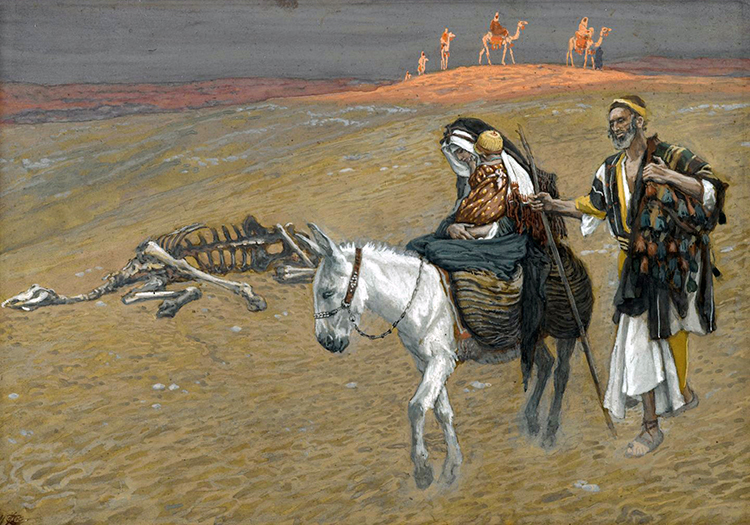
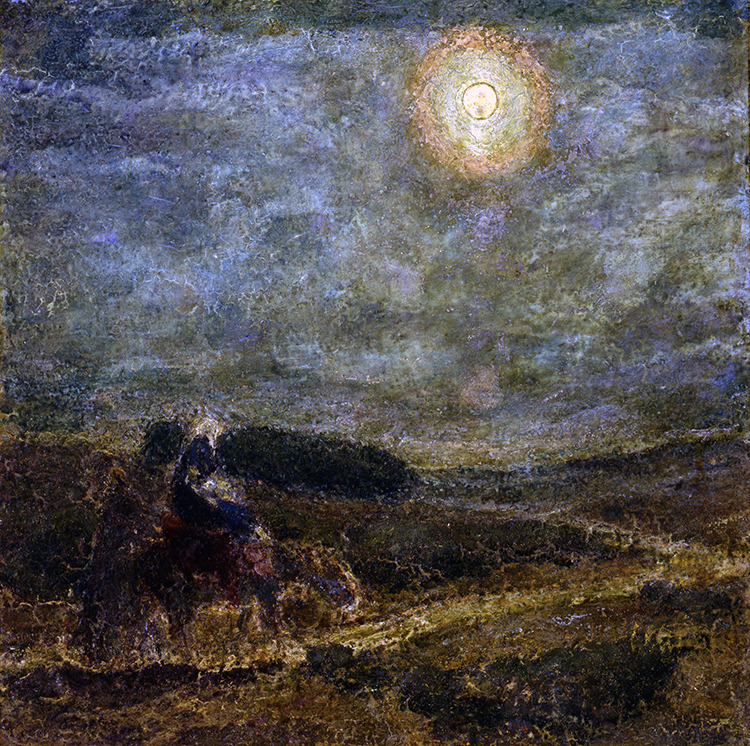
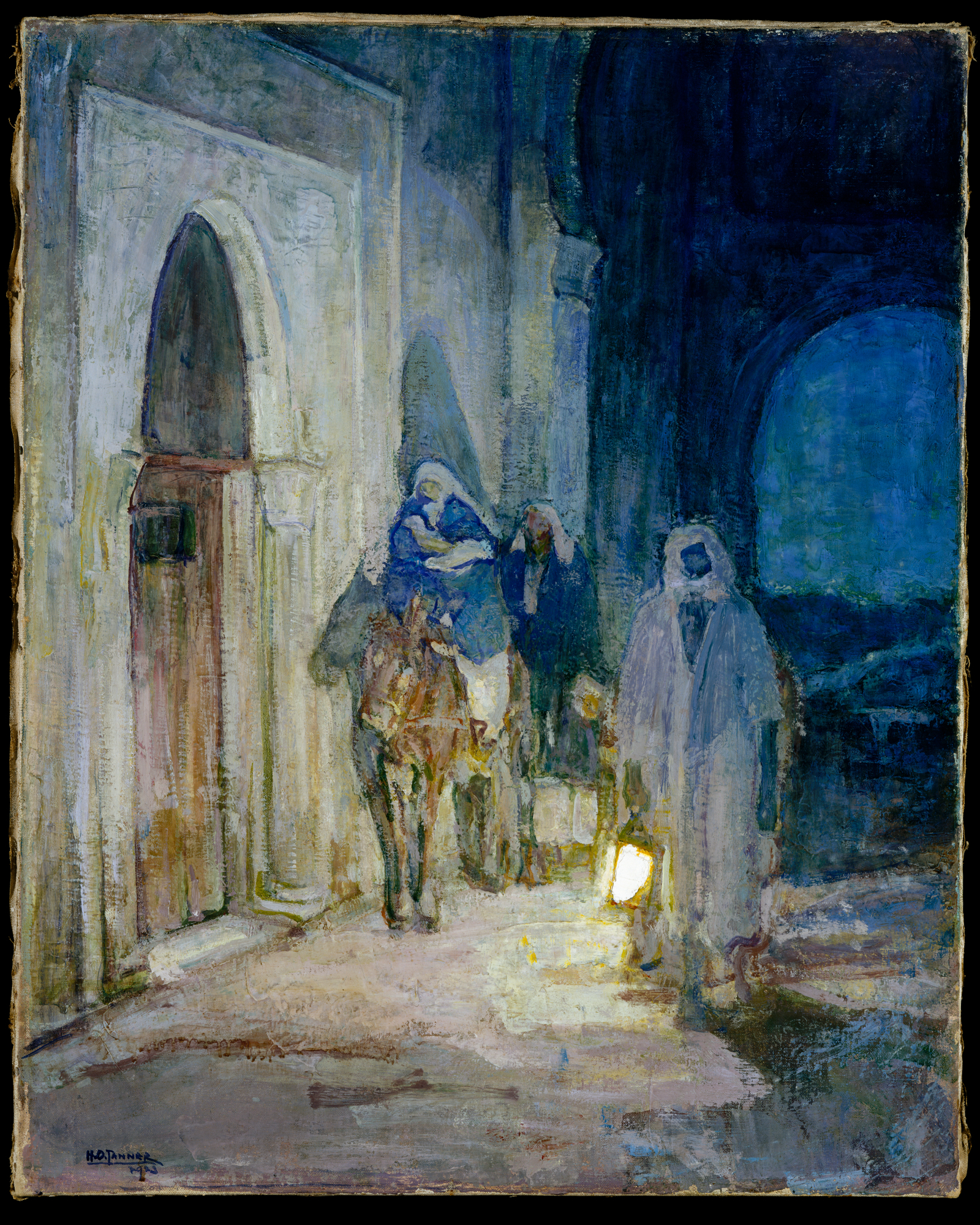
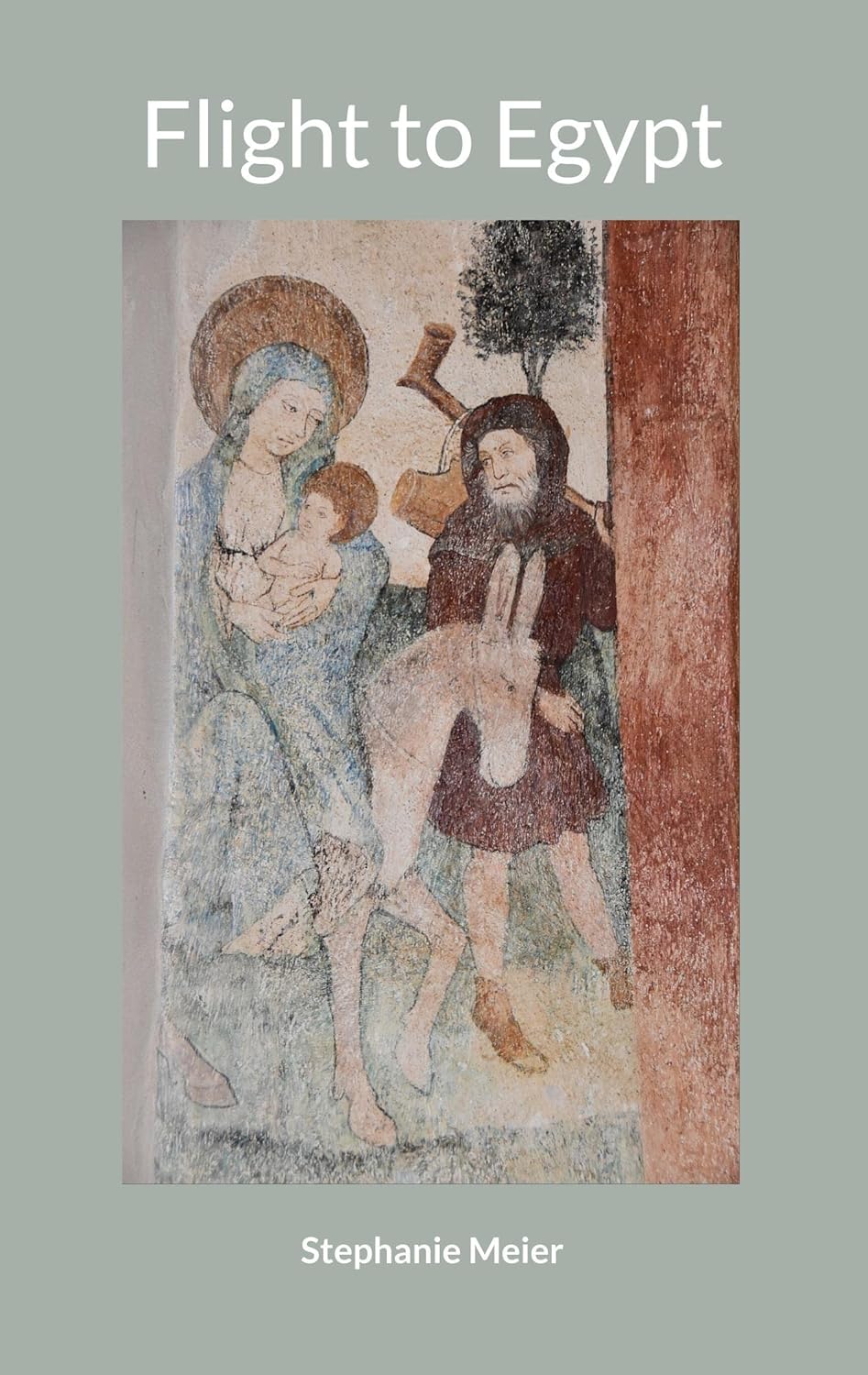
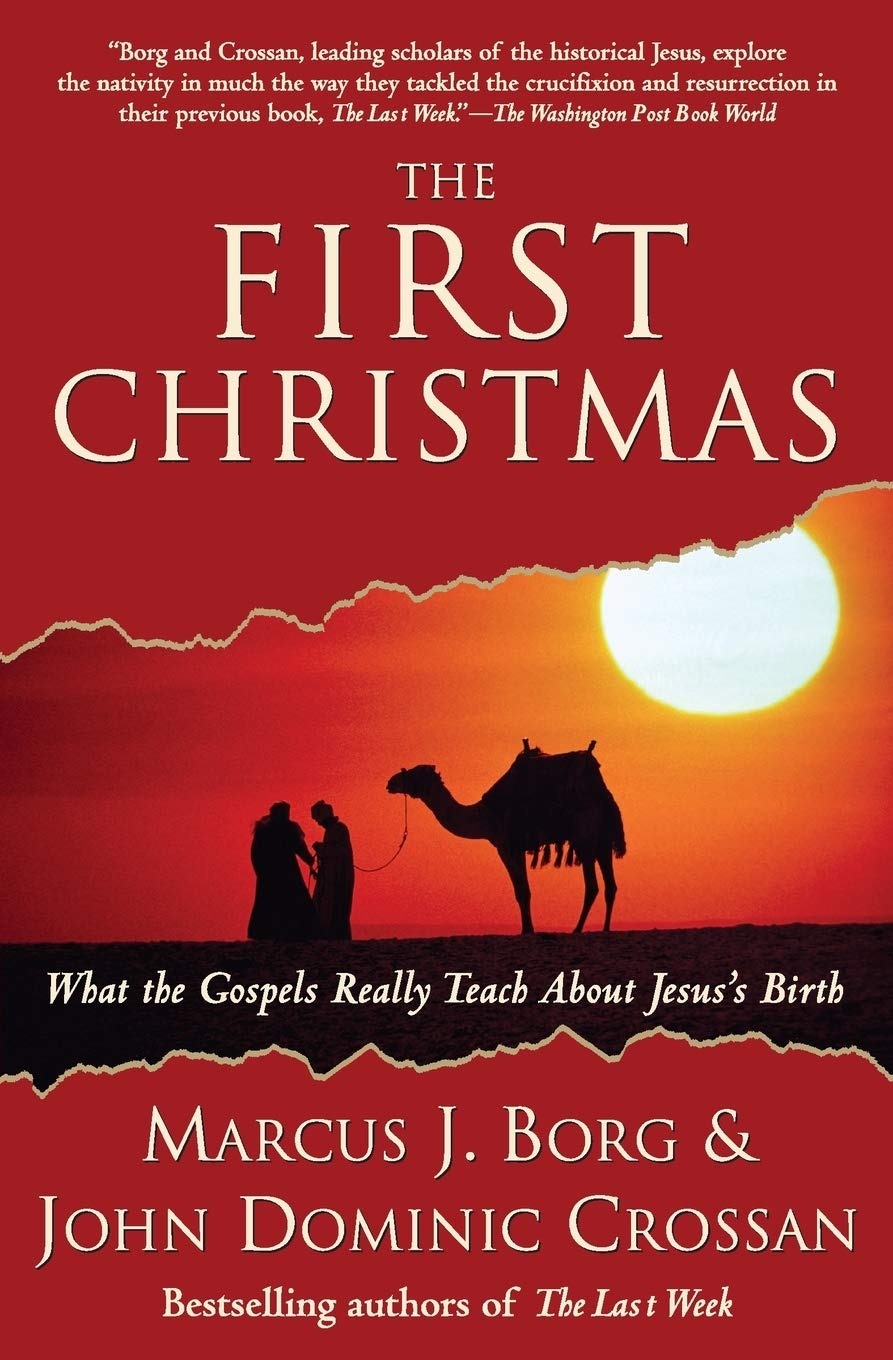

I was troubled by your statement to the effect that “No matter how good we think our nation is and how much we love our country, in some ways, it is still always “Rome.” It means that for Christians, our first alliance must always be to God and not our country. We should not easily mix “God and country” because there will always be tension between them. Moreover, every government expects that it be the first loyalty of citizens, which is unacceptable to God’s people.” Doesn’t your statement imply that for believers, a choice between god and country is encouraged and indeed, must be made. Rather than separation of church and state, believers are expected to put their belief system first, presumably bypassing, if need be, directives from government that are at odds with those belief systems. And how do you have unity as a nation if members of that nation maintain their first loyalty to the dictates of their various and conflicting belief systems?
Lori, thank you for your thoughtful comment. The short answer is that it is indeed complicated. However, we often have “ordered” loyalties. It does not mean “no” loyalty to the lower one. For instance, most of us would say we have a higher loyalty to our families than those we do not know. Consequently, we do not give away so much to the poor as to harm our family’s needs. I think the key in your statement is “If need be.” Conflicts between faith and government dictates must be dealt with carfully and with integrity. But since we just had the MLK day, it provides a good example. King decided that his faith required him to violate the law and go to jail in several instances. Of course, his “Letter from a Birmingham Jail” is a classic document outlining his decision to do that. I think in a democracy such as ours, the first step would almost always be to try to change the law before violating it.